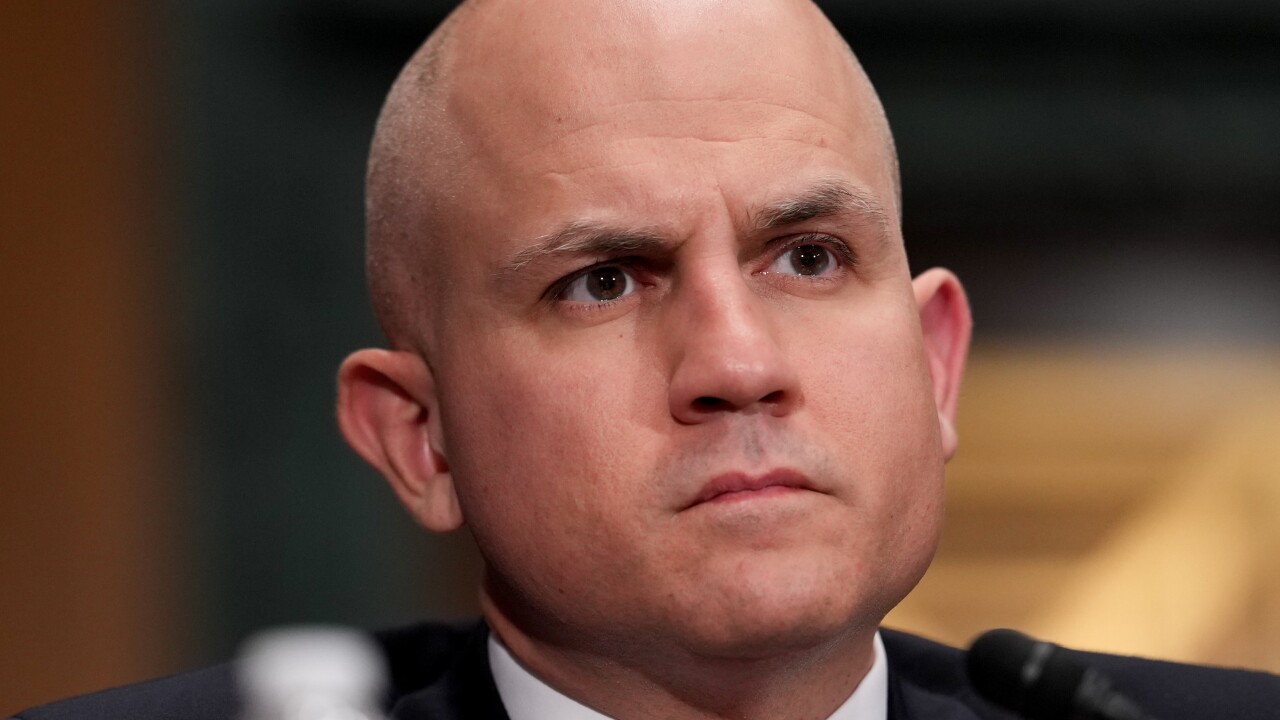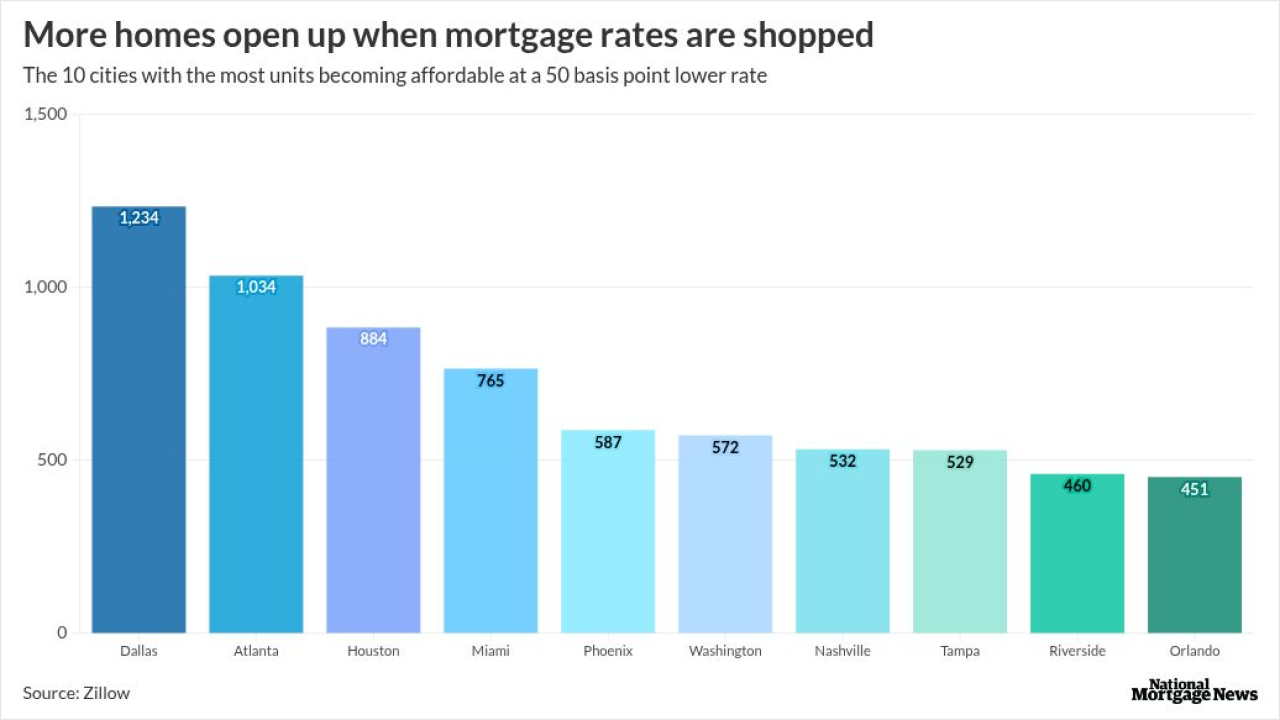Ocwen Financial could end up dishing out nearly three times the $100 million special reserve it set aside to resolve allegations it mistreated mortgage borrowers.
It could cost the specialty servicer nearly $300 million to settle with the New York Department of Financial Services and the Consumer Financial Protection Bureau, as well as to pay reparations to affected borrowers, Height Analytics researcher Ed Groshans said in a client note Thursday that sketched out a worst-case scenario.
"Ocwen could potentially resolve the investigation in six to nine months," said Groshans, adding that its offenses may be less dramatic than he first anticipated.
The New York financial regulator
Ocwen's primary settlement with New York may cost $149 million to $184 million, though it could reach as high as $220 million, Groshans said. Settling with the CFPB could range from $24 million to $34 million, though it could go as high as $70 million, he said. Those outlays could add up to as much as $290 million.
Ocwen warned shareholders in its most recent earnings conference call that its New York settlement alone could be "materially higher" than the $100 million it incurred. Spokesman David Millar said the company has no further comment beyond what its chairman, William Erbey, told shareholders in that earnings call.
The varied missions of different regulatory agencies has put Ocwen and other specialty servicers in a tight spot. Bank regulators, keen to reduce systemic risk in financial markets, are using risk-based capital rules to drive certain delinquent loans out of banks' balance sheets. Consumer regulators, however, are also watching the transfer of those assets to nonbanks, which have more than doubled in asset size in less than two years. The Federal Housing Finance Agency has joined consumer watchdogs in concern over the short-term funding of nonbanks, which raises questions as to what may happen over time with the long-dated mortgages.
Industry defenders argue it is in regulators' interest to settle the matter, as a continued holdup in the servicing business may result in delayed if not worse-quality service to borrowers. They argue the loans are better off in the hands of large servicers who can handle the loan payment streams more efficiently than banks or smaller firms.
JPMorgan Chase's top mortgage securities experts led by Matthew Jozoff argue the freeze in transfers between banks selling their portfolios to nonbanks also has direct consequences on the housing market's limping recovery.
The ability to transfer is being taken into account by lenders pondering whether to extend credit to marginal borrowers, Jozoff wrote in a recent report. Hepredicts future servicing sales will continue to slow if not stop.
A fast resolution with New York could allow Ocwen to halt its runoff of its servicing book, and could result in a resumption of talks to acquire
Ocwen services a total portfolio of $455 billion in unpaid principal balances, according to Wells Fargo Securities data.





